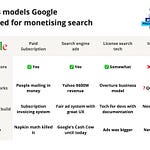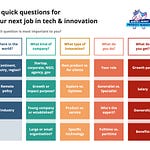🎉 Welcome to the 500th (and some more) subscribers!
😎 And special thanks to all those who have been reading along.
More often than not, I see (first-time) entrepreneurs set modest goals. However, research shows (meta-analysis) that difficult goals lead to better performance:
“We found a positive, linear function in that the highest or most difficult goals produced the highest levels of effort and performance”
So, to make you perform better, I’ll give you three simple steps to create more ambitious goals.
1. Set your goal
Think of an aspect of your business where you want to perform. Sales, revenue, any goal. Where do you want to be? Pick a number.
Now ask yourself, how likely is it you are going to make this goal? Quite likely? Let’s move on to step 2.
2. Set a challenging goal
Now we are going to set a challenging goal. Google’s OKR playbook makes it so that you should hit 60-70% of your goals. Revisit your previous goal. How high should your goal be if you want to be 60-70% sure that you are going to make it?
3. Set a ‘fuck yeah’ goal
Oh blimey, a swear word. This is a goal you want to set!
A goal that if you reach it, will make you go: ‘fuck yeah, we made this’. 10% chance of you making it and you did it! Pop champagne. Drop everything. Be extremely proud of your team.
You will not be just content or happy, you will be genuinely surprised with yourself. You’ve outdone yourself.
Note: This is not the same has a BHAG (Big Hairy Audacious Goal). BHAG’s are more like long term future visions. Fuck-yeah goals can be smaller, shorter term goals of your startup.
4. Reflect
Now you have a spectrum of goals for one aspect of your business. I’m not saying you should pick your ‘fuck yeah’-goal each time. But, coming from the starting point of a very attainable goal, you might have scooched over a little bit.
I believe the ‘fuck yeah’ goal makes the challenging goal seem more attainable. This is a psychological trick.
If renting a bike costs €10 per hour and €25 for the day, €25 seems cheap. It’s called decoy pricing. Your fuck-yeah goal might be a decoy goal that stretches your potential.
Why do goals work?
The article is full with interesting insights, here are some I found relevant for you:
Goals give focus
“Goals direct attention and effort toward goal-relevant activities and away from goalirrelevant activities.”
Hard goals give people room to try longer
“When participants are allowed to control the time they spend on a task, hard goals prolong effort”
Be realistic about your capabilities
“Performance decreased only when the limits of ability were reached”
Commit to your goals
“The goal–performance relationship is strongest when people are committed to their goals.”
Urging people to do their best doesn’t help
“We found that specific, difficult goals consistently led to higher performance than urging people to do their best. In short, when people are asked to do their best, they do not do so.”
If you get stuck, update the goal to discover many options
“[Sometimes, difficult goals] make people so anxious to succeed that they scramble to discover strategies in an unsystematic way and fail to learn what is effective. This can create evaluative pressure and performance anxiety. The antidote is to set specific challenging learning goals, such as to discover a certain number of different strategies to master the task”
🔥 Jeroen’s spicy hot take
Don’t make qualitative goals measurable for the sake of measuring. If you need to finish your landing page, just make it a boolean. If you need a marketing plan, sure, but don’t make it a 4-page goal.
Don’t make quantitative goals on sales if you don’t have your proposition yet. Make sure you have appropriate goals for the phase you are in. If you still doing customer interviews, set a goal on the amount on that. Very early-stage startups will find a hard time finding the right measurable goals. Not a problem.
Be aggressive with goalsetting where you want to perform best. When I started my newsletter, I had a goal of 1000 subs in the first year. I hit 49%. But this was not the most important goal. My most important goal was to publish consistently: bi-weekly. I managed to publish 34 editions in 12 months, that’s more than bi-weekly, on average. That’s where I put my attention. Ask yourself: where do you want to perform the best?
How was this one?
Great - Good - Meh
Need 1 on 1 help?
I help founders build products people want and grow their customer base. Can you use some help? Send me an email at ik@jeroencoelen.nl or read some testimonials here.














Share this post